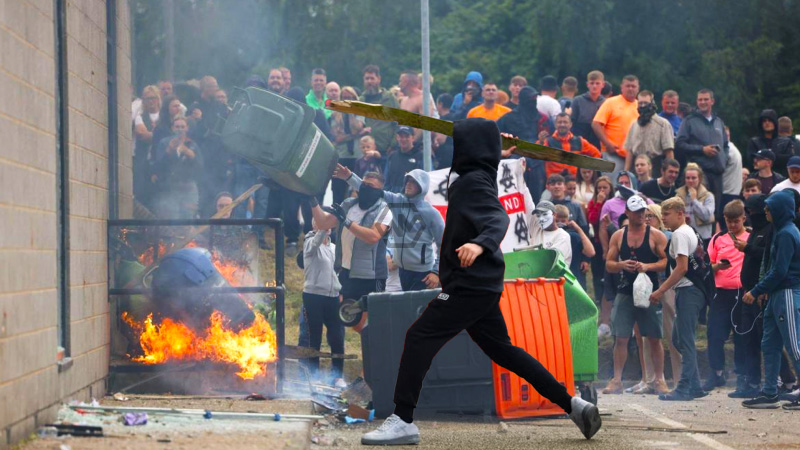- Clashes between anti-immigration and anti-racism groups in Weymouth.
- Dorset Police deploy extensive resources to maintain order.
- Sir Keir Starmer condemns “far-right thuggery.”
Tensions flared in Weymouth as around 400 protesters from anti-immigration and anti-racism groups confronted each other on the seafront.
Labour Party leader Sir Keir Starmer condemned the actions of the far-right protesters, calling their behavior “thuggery” and warning that those involved would face repercussions.
Weymouth Protests Highlight Deep Divisions on Immigration
In Weymouth, a significant police presence was required to manage confrontations between anti-immigration and anti-racism demonstrators. The anti-immigration group, chanting support for Tommy Robinson and waving Union Jack flags, clashed with those advocating for refugee acceptance. The tense standoff resulted in some protesters breaching police barriers, heightening the risk of violence.
Dorset Police’s efforts to control the situation included the use of riot vans and additional reinforcements. Despite these measures, the protests caused major traffic disruptions, particularly around the King’s Statue area, as vehicles were unable to move due to the standstill.
Sir Keir Starmer, leader of the Labour Party, criticized the far-right protesters for their actions, labeling them as “thugs” and emphasizing that such behavior would not be tolerated. Starmer’s remarks underline the broader political and social conflict surrounding immigration in the UK, with strong sentiments on both sides.
The protests in Weymouth are a stark reminder of the challenges the UK faces in addressing issues of immigration and racism. The clashes underscore the need for continued dialogue and efforts to bridge the gap between opposing viewpoints to maintain social cohesion and public order.
The Weymouth protests demonstrate the intense and often volatile nature of the immigration debate in the UK. Effective policing and strong political condemnation of far-right actions are crucial in preventing such conflicts from escalating further.
“Injustice anywhere is a threat to justice everywhere.” – Martin Luther King Jr.



